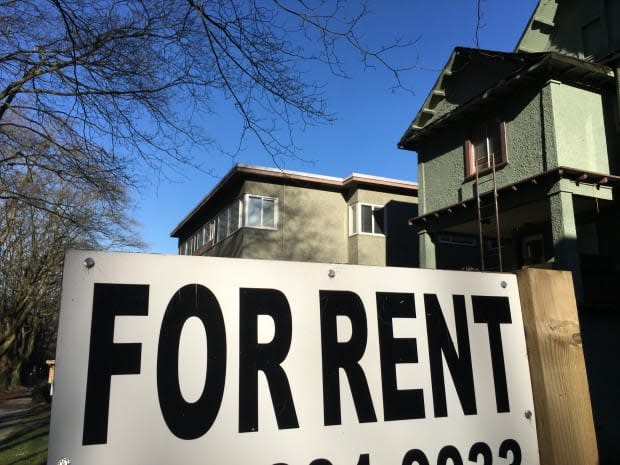No rent increases in B.C. until at least July 2021
The province of B.C. says it is taking steps to ensure ongoing housing security for renters who might be facing financial challenges due to COVID-19 pandemic health regulations.
In a statement, the province said it is extending the freeze on rent increases until July 10, 2021, under the powers of the Emergency Program Act and COVID-19 Related Measures Act.
It said it is an "interim measure" to provide stability and advance notice for renters and landlords, while the newly formed B.C. NDP government's new cabinet is sworn in.
Increases set to happen on Dec. 1 have been cancelled, along with all pending increases through to July, it said.
"We know many renters are still facing income loss and even the slightest increase in rent could be extremely challenging. For that reason, we are extending the freeze on rent increases to provide more security for renters during the pandemic," said Housing Minister Selina Robinson.
The then-minority B.C. NDP government froze rent increases on March 18, with the ban set to expire Dec. 1.
During the recent election campaign, the party made affordable rent and housing security one of its main campaign planks, promising to make a cap on rent increases permanent.
Monday's statement made it clear that any renters who have received notice of impending rent increases after the March 30 ban, including increases set for Dec. 1, should disregard those notices and continue to pay their current rent amount until next July.
"We are all in this together, and it is important for both renters and landlords that people can stay in their homes," Robinson said.

David Hutniak, CEO of Landlord B.C., said while landlords have accepted the fact that "we are all in this together," the freeze poses an additional challenge to a sector already dealing with what he says are the rising costs of insurance and property tax.
"Obviously, we're not pleased," said Hutniak on CBC's The Early Edition on Tuesday.
Hutniak said landlords are also struggling because the pandemic has reduced the number of international students and immigrants looking for housing, and health and safety protocols have made it harder to show rentals to prospective tenants.
He said if the sector is not financially viable, and the regulatory environment is not conducive to investing, then developers will be less likely to build more market rental housing and, in the long term, renters and landlords will suffer.
Hutniak said the organization, which represents 3,300 members, is looking forward to working with the new majority provincial government to ensure the system is working to benefit everyone.
Any landlords or renters with questions are asked to contact the Residential Tenancy Branch at 1-800-665-8779 or email HSRTO@gov.bc.ca.
To hear David Hutniak interviewed on CBC's The Early Edition, tap the media link below:

